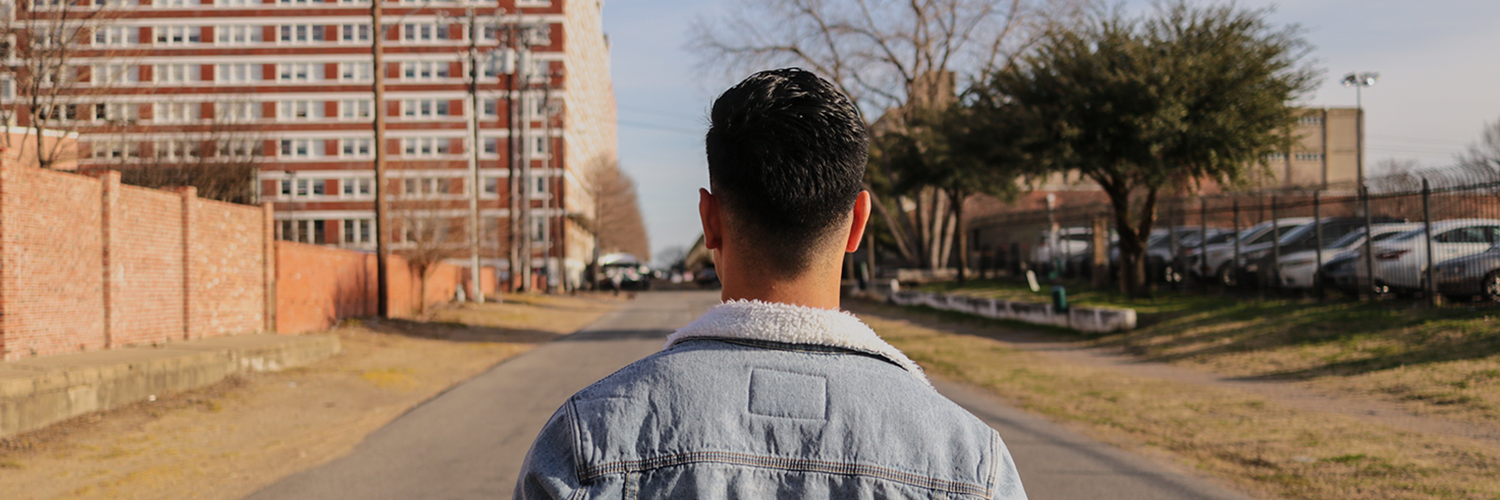The capacity for growth within the human being is massive; it is not uncommon for us to find ourselves marveling at the achievements of others, be it through something shared with us or something we’ve witnessed in person. We often come to a point where we feel proud of our own accomplishments, but for some of us, nothing seems to be enough—there lies a mountain in our path, invisible to all save our own conscience.
Our ideal selves live at the peak; as we continue to reason, reflect, and climb the mountain of self-actualization, it can seem as if we haven’t quite reached the summit. The thought of the peak is exciting, pushing us constantly towards growing our skill trees and immersing ourselves into the ocean of knowledge that is requisite of achieving whatever it is we define success to be. Therein lie the obstacles in our path; in working to become better, smarter, and stronger in the spiritual, mental, and physical parts of ourselves, we fall victim to our own shortsightedness.
In short, we grow tired, and once we are fatigued by the repetitive nature of effort’s drum, we begin to enter a stage of frustration over the path to success. The fatigue and frustration, if left untreated, has the capacity to grow into the very means by which we fail—we give up. Many lessons are to be learned from this understanding, the most pressing being how to execute.
The First Component
The very first point of contact with something we work on always begins with a question: Is this worth my time? We assign value to things and prioritize certain things over others based upon our conscious answer to this question, and oftentimes things that require work over prolonged periods have us assign mental space for them to the point where we stop asking it and begin to run through the motions. We enter into a state of flow with our work, and it becomes second nature. The danger arises when we fail to really ask ourselves this question.
Each minute we live we lose to whatever we spend it on. The currency of life is a constant withdrawal from our account. Valuing our time is not important, it’s requisite. While the thought of our lives growing shorter each day is essential, the same principle as our initial question of worthiness is present; we must constantly remind ourselves of our lack of time in order to create a sense of urgency within us. It is said that procrastinators unite tomorrow, and yet there is no promise of tomorrow. What then?
Really asking ourselves these questions requires deep thought, something often pushed to the side as responsibilities add up and life grows ever more routine; it seems that we grow disheartened at the most important questions, sometimes even avoidant. The reason is simple. These questions are tough to answer because they make us uncomfortable. We would much rather live in the ignorance of our lack of time than come to realize and reflect upon it each day, but this realization and reflection is the essential component to success and self-actualization. Only through reasoning through our thoughts and actions for why we spend our time the way that we do can we begin to plan, execute, and ultimately succeed.
Would you agree to throwing $1.00 into the trash each day with nothing in exchange? How about $100.00? $1,000,000? Material currency pales in comparison to the time we have here in this world. We can always find a way to make more money, spend it, and repeat the process. We can never find a way to delay the end; it’s what lies in store at the end of our years, days, minutes, and seconds.
Valuing our time is something that is free of charge, in the material sense. To value time, we are forced to reflect, and the cost of reflection is sacrifice of our comfort; in forcing ourselves to undergo discomfort at the thought of our fleeting time, we tap into our potential for growth. The sense of urgency hits us, and we are propelled into the next component of progression: action.
The Second Component
We hope to come out of the first component with a bolstered sense of motivation. The unfortunate thing about motivation is that it tends to spike and is inherently inconsistent. In my experience working through projects, I have come to appreciate these spikes. They come without warning and taking advantage of them only helps. The worst state to be in whenever it comes to beginning a project is the period where the motivation wears off. There can be many reasons for this, among them the top two contenders are burnout and worry. The feeling of never doing enough becomes all too real, particularly in our current period where we can witness others’ achievements from a screen 24/7.
Comparing ourselves to others can go wrong very quickly. I do not believe comparison to be something inherently negative, as it can allow for us to learn from other perspectives and lends well to planning/execution of goals; it only goes bad when we begin to believe 1.) That we ought to be there already, and/or 2.) That we do not have what it takes to reach that level. With this mindset, we are sure to defeat ourselves before beginning, or halting our own progression through giving up—the only surefire way to failure.
When we find ourselves motivated, we must race towards that motivation and keep at it relentlessly. There are many ways to do this, and in my life, I have come to find refuge in prayer and comfort in speaking through my worries in meditation. It may not suit you when you start, but I have come to find that taking time to shut the world out and focus on what is important to me helps keep me grounded and focused on the long-term goals I have—just like anything worth doing, it takes dedication, an idea that I go into more detail in another post (linked below if you’re interested).
There is no single answer to how we should do things; each of us face countless decisions over the course of our minutes each day, and these choices lead us down a path that drastically differs from the exact path others take to fulfill themselves. The only step we all share at the start of every decision is the will to start. This brings us to the most important message to be learnt from this second component: get started. No matter how little we may know about something, asking questions and applying ourselves to learning about it is the best way to begin our journey to achieving whatever it is we desire to accomplish out of it.
The difference between people who do and those who don’t is just that; those who do, do, and those who don’t, don’t. It seems obvious, and yet we allow ourselves to remain oblivious, avoidant even, of this. We put off tasks and turn down invitations to bettering ourselves on a consistent basis, so much so that we grow accustomed to being stationary at the level we are at; we stop climbing and reassure ourselves that the level we have reached is the summit. Our worries are quelled for the time being, but a day will come where we will look back and think the ominous, “What if?” Consistency in diving headfirst into what interests us is how we learn, grow, and continue our climb up our mountain.
The Third Component
Greatness comes out of sacrifice, but what warrants sacrifice? What makes something worth our very limited time and effort? What deserves our focus and dedication? We all want things in life. Admission to a competitive program that can take us further in our career, a means by which we can support ourselves and those we care about. Exploring artistic mediums allows for us to express our ideas. Meditation and reflection enables us to learn from our mistakes and become better people. There are innumerable lessons we can gather from the world around us, and finding what makes us excited is a necessary part of a vision for our futures. Pushing our physical limits through physical activity empowers us to reach new levels of fitness and ability. The mountain we climb is not strictly academic, athletic, or spiritual; it is a combination of all the knowledge available in the world. Our only objective is to ask questions and seek answers. Asking how and why, and everything in between. Applying ourselves to seek answers. Defining what we want from life. All of this takes time and effort, and none of it is achievable if we don’t get started and take action. If you’d like to read about defining a vision in further detail, I’ve written about it at length in the post linked below.
To be a doer is to embrace our potential as humans. Believing we aren’t capable enough and going with the motions based upon what we have been told is only a disservice to ourselves—a lie we believe that makes our climb up our mountain that much more difficult.
May we open our eyes, lest our time runs out and they are forced shut.
Regards,
Maaz












Add comment